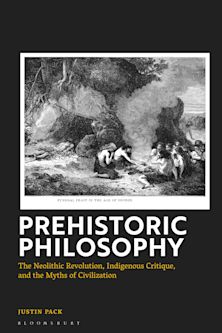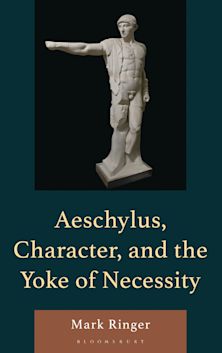The Tragedy of the Athenian Ideal in Thucydides and Plato
The Tragedy of the Athenian Ideal in Thucydides and Plato
This product is usually dispatched within 3 days
- Delivery and returns info
-
Free CA delivery on orders $40 or over
Description
John T. Hogan’s The Tragedy of the Athenian Ideal in Thucydides and Plato assesses the roles of Pericles, Alcibiades, and Nicias in Athens’ defeat in Thucydides’ Peloponnesian War. Comparing Thucydides’ presentation of political leadership with ideas in Plato’s Statesman as well as Laches, Charmides, Meno, Symposium, Republic, Phaedo, Sophist, and Laws, it concludes that Plato and Thucydides reveal Pericles as lacking the political discipline (sophrosune) to plan a successful war against Sparta. Hogan argues that in his presentation of the collapse in the Corcyraean revolution of moral standards in political discourse, Thucydides shows how revolution destroys the morality implied in basic personal and political language. This reveals a general collapse in underlying prudential measurements needed for sound moral judgment. Furthermore, Hogan argues that the Statesman’s outline of the political leader serves as a paradigm for understanding the weaknesses of Pericles, Alcibiades, and Nicias in terms that parallel Thucydides’ direct and implied conclusions, which in Pericles’ case he highlights with dramatic irony. Hogan shows that Pericles failed both to develop a sufficiently robust practice of Athenian democratic rule and to set up a viable system for succession.
Table of Contents
Introduction
Chapter 1: Stasis in Corcyra Modelling Revolution for Thucydides and Plato
Chapter 2: Pericles: Aspiring Statesman in Thucydides, General and Sophist in Plato
Chapter 3: Athenian Speeches in Book 1: Can the Athenian Empire Aim at Justice?
Chapter 4: Democracy, Demagoguery, and Political Decline in Thucydides and Plato: The Debate between Cleon and Diodotus
Chapter 5: The Melian Dialogue & the End of the Political in the Statesman
Chapter 6: Alcibiades’ Desire for Sicily in Thucydides and for Sexual Conquest in Plato
Chapter 7: Harmodius and Aristogeiton and Political Myths
Chapter 8: Euphemus and Alcibiades: The End of the Athenian Logos
Chapter 9: Alcibiades as a Traitor and Grand Version of Meno
Chapter 10: Nicias and the Failure in Sicily
Chapter 11: Revolution in Athens: Why Democracy Failed
Conclusion
Bibliography
About the Author
Product details
| Published | Dec 21 2021 |
|---|---|
| Format | Paperback |
| Edition | 1st |
| Extent | 374 |
| ISBN | 9781498596329 |
| Imprint | Lexington Books |
| Dimensions | 231 x 152 mm |
| Series | Greek Studies: Interdisciplinary Approaches |
| Publisher | Bloomsbury Publishing |
Reviews

ONLINE RESOURCES
Bloomsbury Collections
This book is available on Bloomsbury Collections where your library has access.



































